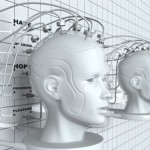 The output derived of crowd based communities has been a constant topic on this blog, and I’ve written a number of times about research into this phenomenon, including what motivates people to participate, what kind of tasks the crowd excel at performing, and how input is distributed through the group.
The output derived of crowd based communities has been a constant topic on this blog, and I’ve written a number of times about research into this phenomenon, including what motivates people to participate, what kind of tasks the crowd excel at performing, and how input is distributed through the group.
Whilst in popular terminology such crowd based ventures tend to go by the name of crowdsourcing, in the academic world they’re often described as human computation, and a recent project from the Human Computation Institute has set out a road map for future research in the field.
They have published a paper that explores both the successes of human computation and some of the projects they regard as suitable for a crowd to excel in.
Supporting mental illness
One such, which they’re labeling Project Houston, would see people from around the world supporting people from around the world that are suffering from mental illness.
They propose to use speech analysis and natural language understanding to understand when someone is under stress and needs help, with that help then arriving via a composite of people within the crowd based upon their specific areas of expertise.
“Project Houston could provide a consistently kind and patient personality even if the “crowd” changes completely over time,” they suggest.
I wrote about a similar project earlier this year that uses the crowd and mobile. The tool allows users to log in and record both a trigger event and their response to it. The social aspect of the tool, which the authors have called Panoply, then sees members of each network vote on the thought pattern input into the system by each user. They are also free to suggest other ways of interpreting an event.
Learning from languages
Another proposal takes a leaf from the Duolingo language app that acts as both a translation service and a language learning app. The authors suggest that a similar approach could be used to learn a variety of skills.
For instance, the authors suggest this could be used in radiology, with humans identifying tumors on x-ray images, beginning with easy to identify ones before then advancing to tougher tasks as their proficiency is proven.
“We believe that online learning that doubles as work (and vice versa) can have a transformative impact on the future of work and education,” they suggest.
Giving slack to the poor
The authors also propose a possible use of the crowd to give the poorest in society a degree of ‘slack’ back by recruiting the crowd to help them navigate welfare programs.
With the crowd taking on these crucial, yet often laborious tasks, the authors believe it would free up time and energy for the poor to deploy in finding work or managing their health.
The study concludes by looking at some of the practical, ethical and financial aspects of human computation. They suggest the field could benefit enormously from a national center devoted to research around the topic, perhaps in a similar way to the recent center for crowdfunding research setup at UC Berkeley.
Whether a physical hub is needed or some means of curating and connecting the various pieces of study in this field that are already under way is a matter of debate however, especially as the Human Computation Institute already exists.
Nevertheless, an interesting paper if you work in this field.
I think privacy concerns is the main issue for me. Are people consenting to their data being used for research? I mean really?
This is a valid concern that is beginning to be addressed by the human computation research community. See: Bowser, A., & Wiggins, A. (2015). Privacy in Participatory Research: Advancing Policy to support Human Computation. Human Computation, 2(1), 19–44. http://tinyurl.com/hcprivacy